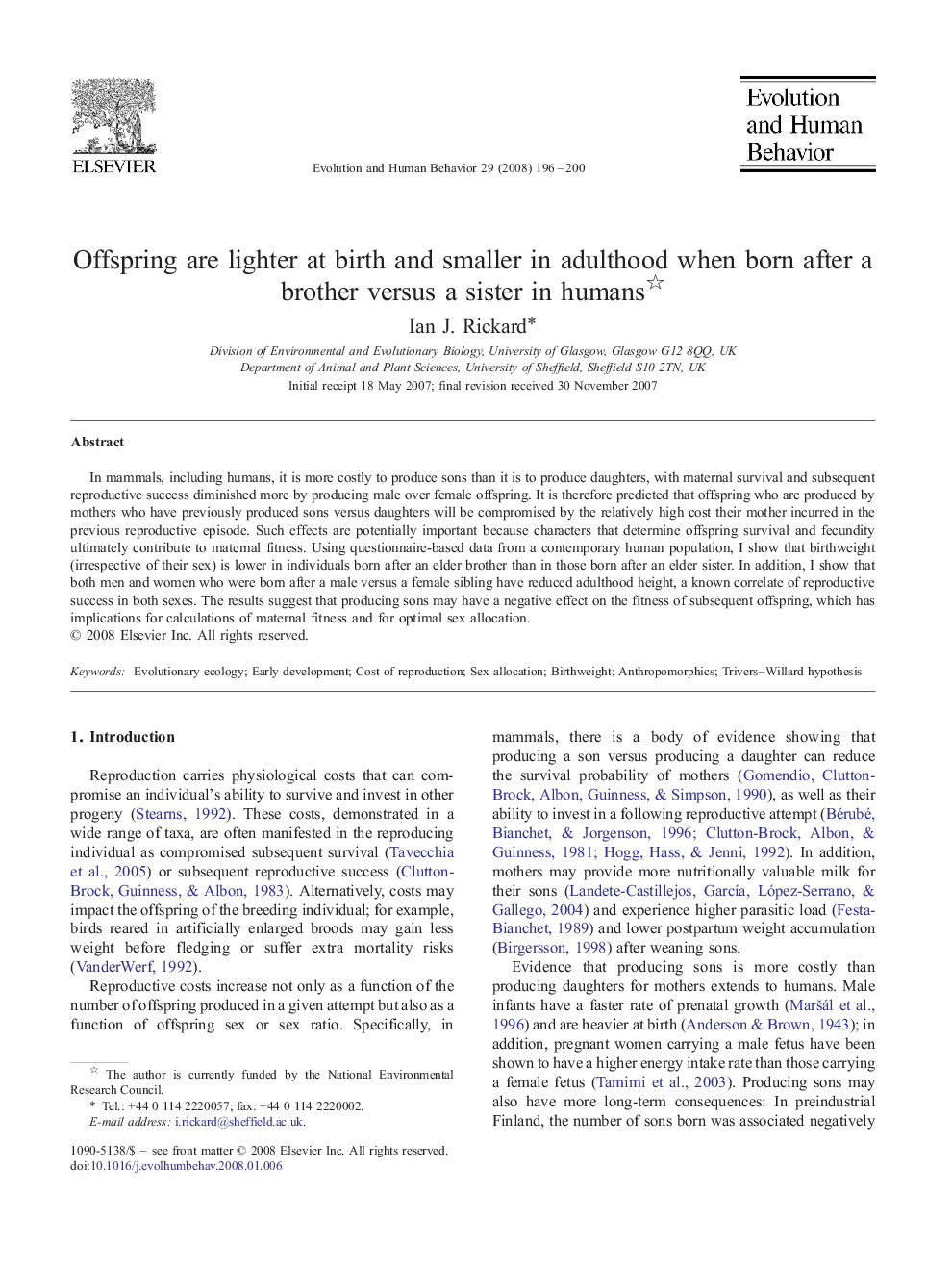| Article ID | Journal | Published Year | Pages | File Type |
|---|---|---|---|---|
| 943481 | Evolution and Human Behavior | 2008 | 5 Pages |
In mammals, including humans, it is more costly to produce sons than it is to produce daughters, with maternal survival and subsequent reproductive success diminished more by producing male over female offspring. It is therefore predicted that offspring who are produced by mothers who have previously produced sons versus daughters will be compromised by the relatively high cost their mother incurred in the previous reproductive episode. Such effects are potentially important because characters that determine offspring survival and fecundity ultimately contribute to maternal fitness. Using questionnaire-based data from a contemporary human population, I show that birthweight (irrespective of their sex) is lower in individuals born after an elder brother than in those born after an elder sister. In addition, I show that both men and women who were born after a male versus a female sibling have reduced adulthood height, a known correlate of reproductive success in both sexes. The results suggest that producing sons may have a negative effect on the fitness of subsequent offspring, which has implications for calculations of maternal fitness and for optimal sex allocation.
